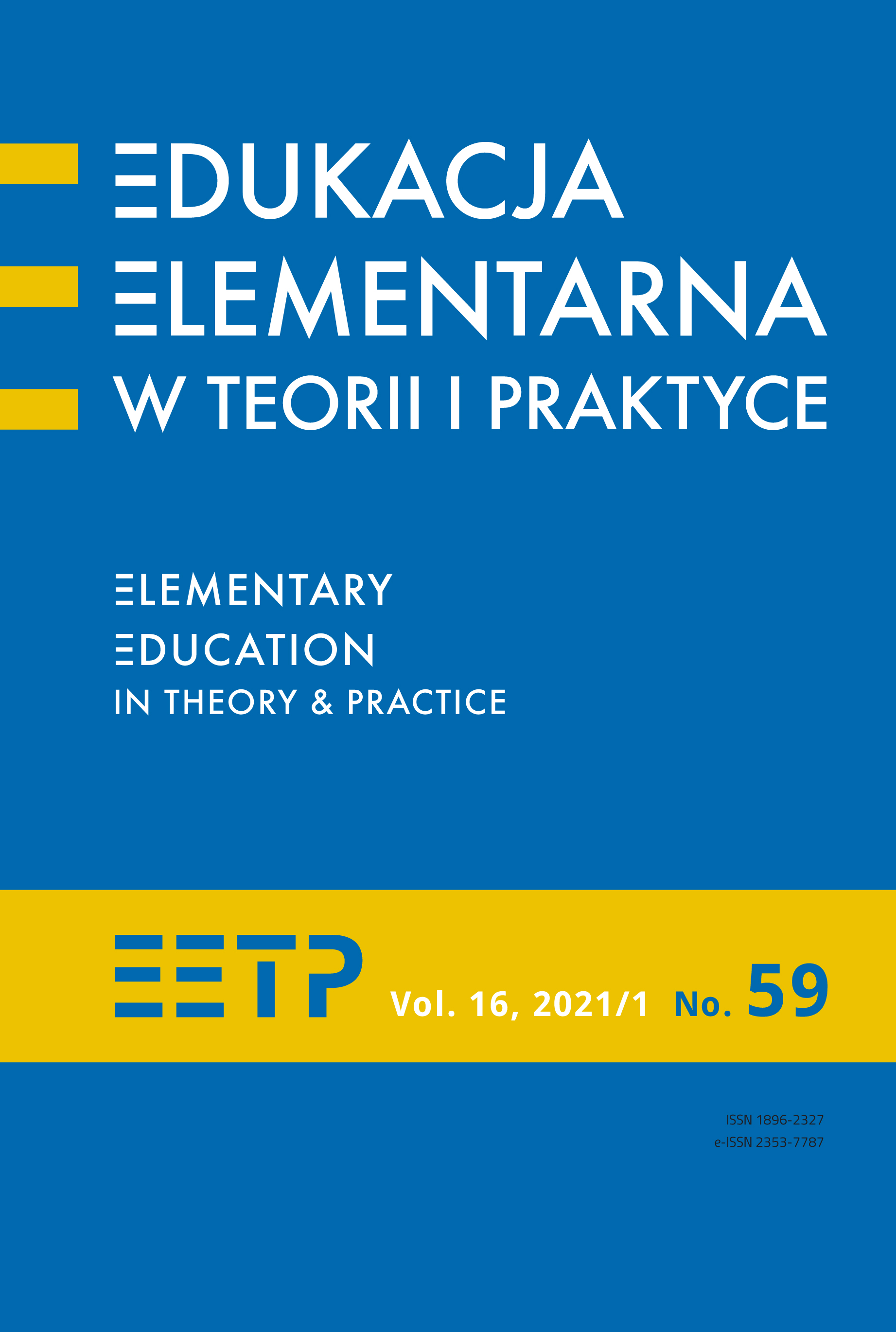Philosophical Assumptions of Early Music Education – a Compromising Solution
Abstract
This paper aims at presenting philosophical assumptions of early music education. The introductory part draws the readers’ attention to the absence of any elements of early music education philosophy in Poland, even though such elements can be found both in the theory of aesthetic education and related music education theories. The first part of the article focuses on two opposite approaches, i. e., the aesthetic and the “praxial” one, presenting their philosophical background. After discussing the differences between one approach and the other, the author of the article presents her own idea how to reach a compromise between the aestheticians and the “praxialists”. The method she applies is the critical analysis of texts. The author suggests that the compromising solution, which she describes as an aesthetic-praxial one, should be applied as philosophical assumptions of early music education.
References
Alperson, P. (1991). What Should One Expect From a Philosophy of Music Education?, „Journal of Aesthetic Education”, nr 25(3), s. 215-242.
Elliot D.J. (1995). Music Matters. A new Philosophy of Music Education, New York, Oxford: Oxford University Press.
Gordon E.E. (1997). Umuzykalnianie niemowląt i małych dzieci. Teoria i wskazówki praktyczne, tłum. E. Kuchtowa, A. Zielińska, Kraków: Wydawnictwo „Zamiast korepetycji”.
Gutek G. L. (2007). Filozofia dla pedagogów, Wyd. 2., Gdańsk: Gdańskie Wydawnictwo Psychologiczne.
Jones P. M. (2007). Music education for society & sake: Music education in an era of global neo-imperial/neo-medieval market driven paradigms and structures, „Action, Criticism, and Theory of Music Education”, nr 6(1).
Klus-Stańska D. (2009). Dyskursy pedagogiki wczesnoszkolnej, [w:], Pedagogika wczesnoszkolna – dyskursy, problemy, rozwiązania, D. Klus-Stańska, M. Szczepska-Pustkowska (red.), Warszawa: Wydawnictwa Akadmeickie i Profesjonalne, s. 25-78.
Lissa Z. (1975). Nowe szkice z estetyki muzycznej, Kraków: Polskie Wydawnictwo Muzyczne.
Panaiotidi, E. (2002). What is philosophy of music education and do we really need it?, „Studies in Philosophy and Education”, nr 21, s. 229-252.
Przychodzińska M. (1987). Polskie koncepcje powszechnego wychowania muzycznego. Tradycje – współczesność, Warszawa: WSiP.
Przychodzińska M. (1989). Wychowanie muzyczne – idee, treści, kierunki rozwoju, Warszawa: WSiP.
Reimer B. (2003). A Philosophy of Music Education: Advancing the Vision, Third Edition, Upper Saddle River N.J.: Prentice Hall.
Schusterman R. (1992). Pragmatist Aesthetics. Living Beauty, Rethinking Art, Cambridge MA: Blackwell.
Suświłło M. (2018). Podstawy rozwijania muzykalności dziecka – implikacje dla edukacji. “Aspekty Muzyki” tom 8, s. 39-65.
Tatarkiewicz W. (1988). Dzieje sześciu pojęć. Sztuka – piękno – forma – twórczość – odtwórczość – przeżycia estetyczne, Warszawa: PWN.
Vogt J. (2003). Philosophy–Music Education–Curriculum: Some casual remarks on some basic concepts, “Action, Criticism & Theory for Music Education”, nr 2 (1), s. 1-25.
Westerlund H. (2003). Reconsidering Aesthetic Experience in Praxial Music Education, „Philosophy of Music Education Review”, nr 11(1).
Wojnar I. (2000). Humanistyczne intencje edukacji, Warszawa: Wydawnictwo Akademickie „Żak”.
Copyright (c) 2021 Elementary Education in Theory and Practice

This work is licensed under a Creative Commons Attribution-NoDerivatives 4.0 International License.
- When submitting a text, the author declares that he/she is the Author of the article (hereinafter referred to as the “Work”) and:
- he/she owns the exclusive and unlimited copyright to the Work,
- is entitled to dispose of the copyright to the Work.
Declares that it does not infringe any third party copyrights or legal rights.
Declares that there is no conflict of interest.
2. At the same time, the Author grants the Ignatianum University in Cracowa royalty-free, non-exclusive and territorially unlimited licence to use the Work in the following fields of exploitation:
- recording the Work in a hard copy, as well as on a digital or magnetic medium;
- reproduction of the Work using any technique, without limitation of the number of editions or copies;
- distribution of the Work and its copies on any medium, including marketing, sale, lending, and rental;
- introduction of the Work into a computer memory;
- disseminating the Work in information networks, including in the Internet;
- public performance, exhibition, display, reproduction, broadcasting and re-broadcasting, as well as making the Work available to the public in such a way that everyone can have access to it at a time and place of their own choosing;
- within the scope of dependent rights to the Work, including in particular the right to make necessary changes to the Work resulting from editorial and methodical development, as well as to translate the Work into foreign languages;
The licence is granted from the moment of the transfer of the Work to the Ignatianum University in Cracow. The Ignatianum University in Cracow is entitled to grant further sub-licences to the Work within the scope of the right granted. The licence is time-limited and it is granted for a period of 15 years, starting from the date of its granting.
Authors are permitted and encouraged to publish their text online (e.g. in their institution’s repository or on the institution’s website) before or during the submission process as this may lead to beneficial exchanges, as well as earlier and greater citation of the published text (See The Effect of Open Access). We recommend using any of the following portals of research associations:
- ResearchGate
- SSRN
- Academia.edu
- Selected Works
- Academic Search




